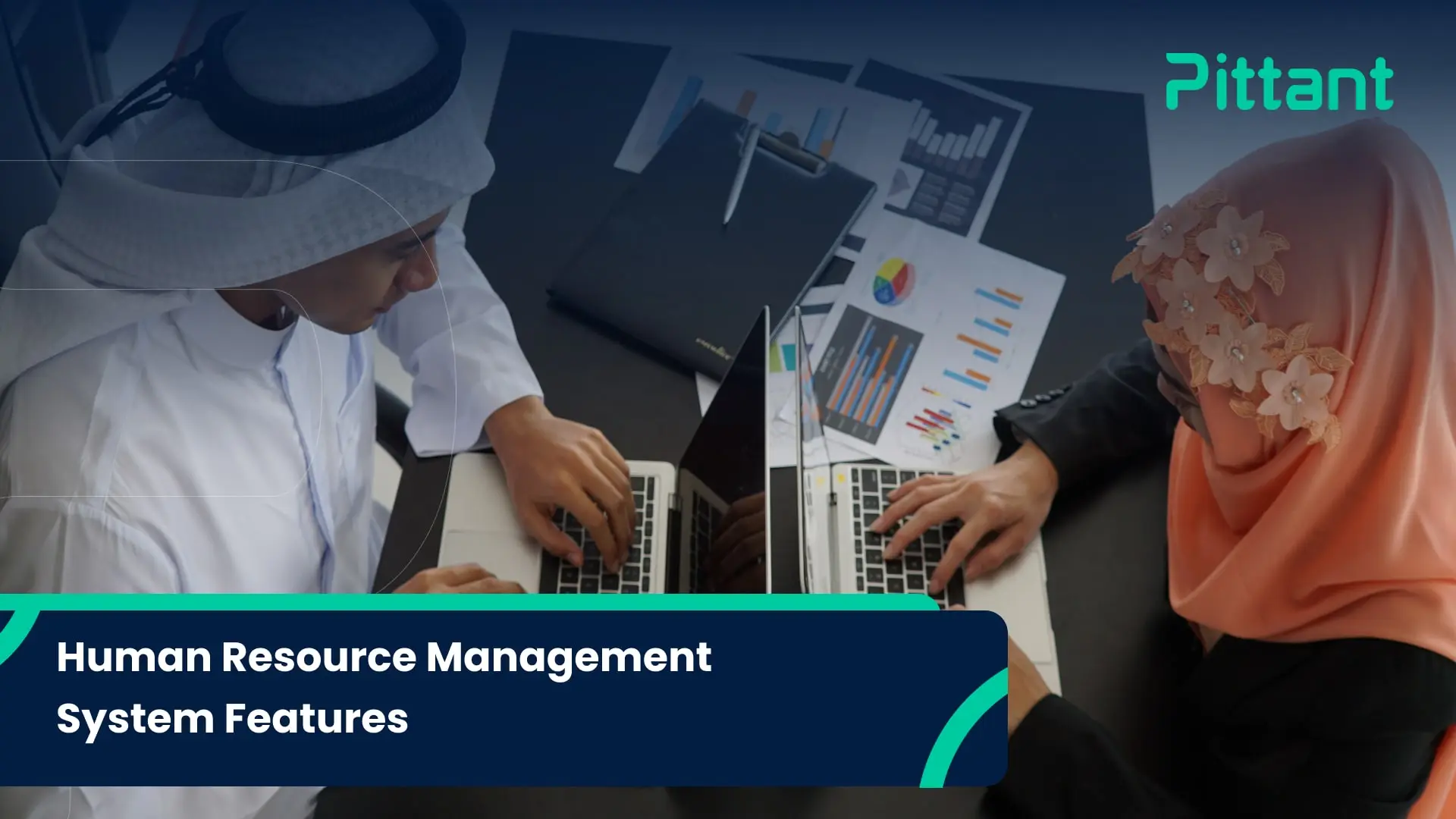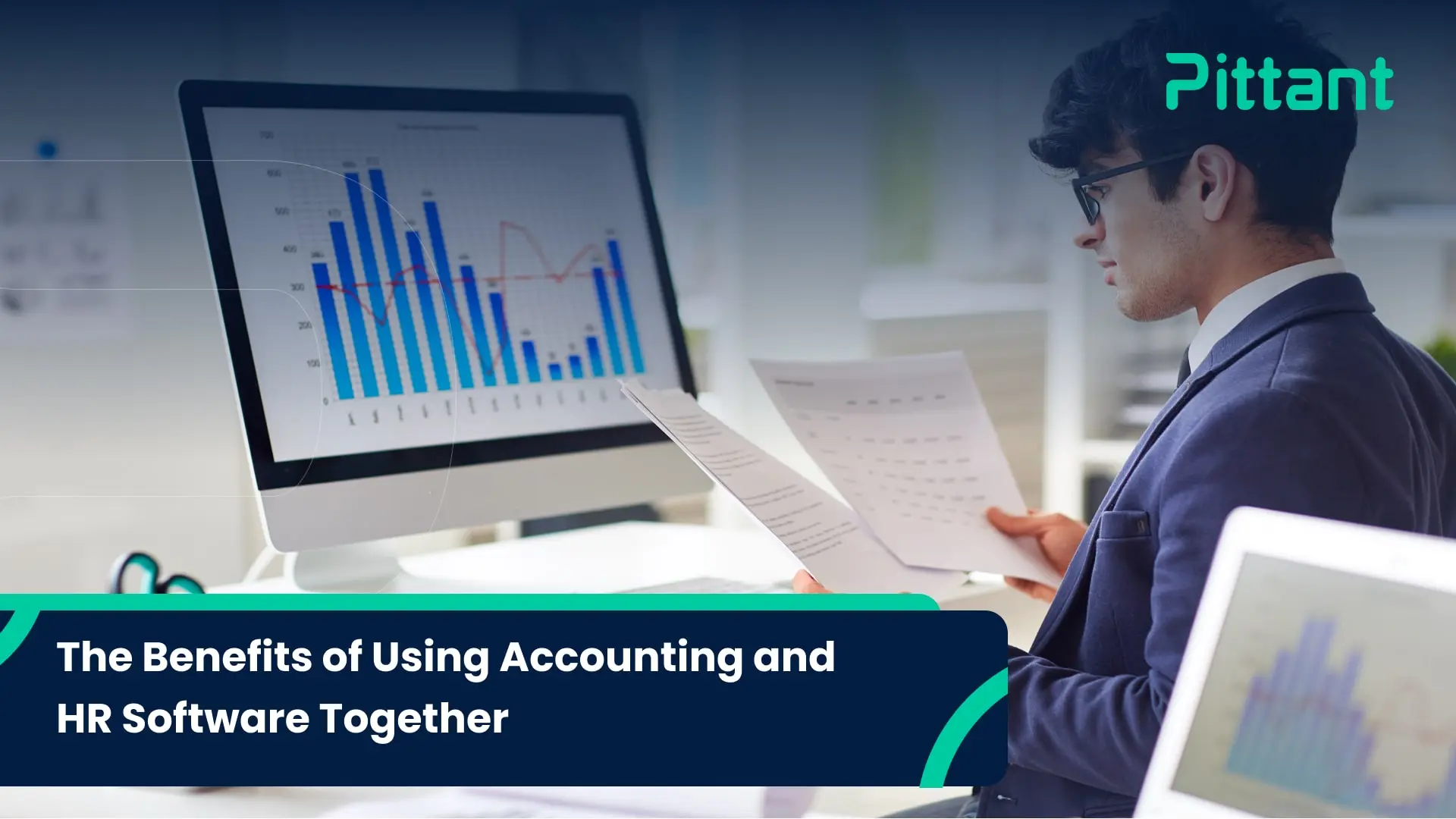Large-scale companies and organizations require effective HR management solutions, smooth administrative procedures, maximum efficiency, and legal compliance with local regulations. HRMS are cloud-based HR management systems, the best option for handling massive employee information and automated task management while eliminating manual procedures and the risk of errors. These cloud-based systems have great features, like quick payroll and administrative and employee performance management for smooth processes.
These HRMS provide the latest capabilities and help management create effective strategies to discover new trends and enhance employee engagement and turnover. They can create a more productive and positive work environment using efficient HRMS. However, physical HR management is required to handle the HRMS effectively and utilize its features while overall controlling work ethics and maintaining discipline in the workplace.
What is an HRMS?
A human resource management system is an efficient software system handling an organization’s automotive HR and administrative functions. This effective system provides instant access to data analytics, employee history, personal information, performance, and payroll information. It has various segments for new hiring, onboarding, working hours, attendance, payroll, and performance management. They provide automated tasks and the latest data and information. These cloud-based systems also help businesses eliminate workload, enhance efficiency, and provide the latest insights.
Best HR Management Solutions
The HR management solution is cloud-based software that provides quick and smooth access and aligns with business requirements and objectives. Companies can consider these essential factors when choosing the best HRMS.
Adaptability to Grow
This system provides adaptability to grow according to emerging trends and required changes.
Smooth Integration:
This efficient software integrates smoothly with all HR functions and administrative applications.
Smooth Interface:
These systems have smooth interfaces that are quickly accessible and easy for management and employees.
Easy Customization:
These software systems offer easy customization, flexible workflows, and smooth procedures according to business requirements.
Security Measures:
These effective software systems provide extensive security measures for confidential data protection against unauthorized access.
Human Resource
To choose the right HR system, assess your organization’s specific needs. Consider factors like size, industry, and desired features. You can search for the best vendors and check their system demos for reliability and security.
Recruitment
Check the relevancy of these software systems for recruitment features, such as job application tracking, job ad posting, and screening process. Application tracking systems must be integrated with this software to provide smooth hiring procedures.
Payroll
The best payroll software for large companies provides accuracy with great features and is perfectly integrated with employee attendance and working hours. These software systems also provide employee self-service for direct deposits, tax reporting, and smooth access to all data and information.
Onboarding
These efficient software systems provide excellent features like electronic onboarding systems, document management, and tracking records of new hires with legal compliance. These systems integrate with new hiring procedures and ensure smooth accessibility with a positive impression.
Off-boarding
Choose an HR system that supports exit interviews, knowledge transfer, and equipment return management. Look for features that automate tasks like final paycheck processing and benefits termination, ensuring a smooth transition for departing employees.
Scheduling
The most efficient HR systems have various features, such as tracking hours and attendance, different shift scheduling, and employee leave management. These systems can integrate with real-time mobile apps to track employee clock-in and clock-out timings.
Leave Management & Tracking
The HR software systems have more advanced features, like leave application status, approvals, and leave balance tracking. These efficient software systems integrate with real-time calendars for employee leave policies to provide accuracy and compliance for leave balance and approvals.
Work Chat
Choose an HR system with integrated communication features like instant messaging, group chats, and file sharing for work chat. Look for systems that offer a secure and reliable team collaboration and communication platform.
Performance Management
The best HR software system provide excellent advanced features for performance management, such as employee performance reviews, employee development plans, and goal setting. These effective software systems integrate with workforce performance appraisal tools and provide latest data analytics to find the best work potential in workforce and required improvements for development.
Employee Location Monitoring
Choose an HR system with GPS tracking and geo-fencing features for employee location monitoring. Look for systems that comply with privacy regulations and openly communicate with employees about location monitoring policies.
Steps to Select the Best HR Systems
These are the essential steps to choosing the best Enterprise HR software or HR systems to create a more productive and smooth work environment and enhance employee satisfaction.
First, Identifying your Needs
Before selecting HR software for large companies, assess your organization’s size, industry, and specific requirements. Consider factors like employee count, compliance needs, and desired features. This will help you narrow your options and find a system that aligns with your goals.
Researching Vendors
Companies must identify their requirements to find the perfect match and the bet HR software for the business. They can conduct deep research for the best vendors by tracking their previous records, experiences, client testimonials, and commitment for support. They can consider essential aspects, such as vendor’s credibility, price quotes, and quality assurance.
Create a Shortlist
Based on your research, create a shortlist of potential vendors. Consider factors like system features, pricing, and vendor reputation. Schedule demos or trials to evaluate each system’s usability, integration capabilities, and overall fit with your organization’s needs.
Testing Shortlisted Vendors
After creating a shortlist, schedule demos or trials to evaluate each system and consider these factors like user-friendliness, integration capabilities, and overall fit with your organization’s needs, test the system’s functionality and gather feedback from potential users.
Implementing and Onboarding
Once you’ve selected a vendor, plan for implementation and onboarding. Develop a project plan, assign roles, and train employees. Ensure a smooth transition by offering ongoing support and addressing any issues.
Conclusion
Choosing the top HR software solutions for a large-scale organization is crucial for optimizing HR processes and improving efficiency. By carefully evaluating factors like scalability, integration, and user-friendliness, organizations can find a system that supports their growth and contributes to a positive employee experience.
FAQs
What is the best way to manage human resources?
The best way to manage human resources is to prioritize employee satisfaction, foster a positive work culture, and provide opportunities for professional development. This approach increases productivity and reduces turnover and overall organizational success.
Which system is useful for managing the HR activities of an Organization?
An HR Management System (HRMS) is a valuable tool for managing HR activities. It automates tasks, centralizes employee data, and provides insights to support effective decision-making.
What is the difference between managing HRIS and e HRM?
HRIS (Human Resource Information System) and e-HRM (electronic Human Resource Management) are often used interchangeably. While HRIS focuses on data management, e-HRM encompasses broader HR functions, including recruitment, performance management, and payroll, usually leveraging technology to streamline processes.




